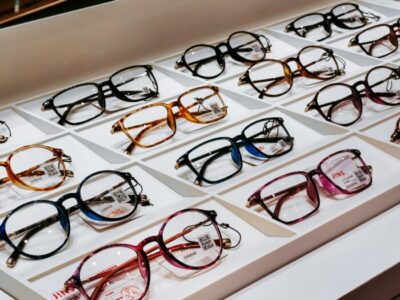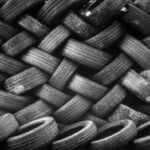Demo eyeglass lenses, the non-prescription plastic lenses used in the frames of glasses until replaced by prescription lenses, are an example of pre-consumer waste. Demo lenses are single-use plastic used in the distribution channel before the customer purchases the product. According to MAFO – a journal covering the optical business – as of 2019, 400 million ophthalmic frames are produced annually, and 4000 tonnes of demo lenses are wasted.
And without a well-established recycling or waste management system, 60% of plastic demo lenses will go to landfills, 25% to incineration, 13% to recycling, and 2% to litter.
Several optical companies are addressing the problem:
- Costa is a purpose-driven brand that makes prescription lenses and sunglasses for people who live, work and play on open water. Costa announced their Kick Plastic Lens Recycling Program at the Vision Expo East 2019, encouraging Eyecare Professionals and Optical Labs to collect and recycle their demo lenses, frames, and sunglasses through 13 Piedmont Plastics facilities across the United States. By 2020, more than 750 optical retailers were sending their demo lenses to Piedmont plastics. As a result, more than 4 tons of plastic lenses have been recycled into materials appropriate for safety glasses, motorcycle helmets, and scuba masks.
- Eyewear brand Warby Parker (A New York-based certified B-corporation) began a program in 2021 to send lenses from their Optical Labs to Eastman. Eastman uses chemical recycling to break tthem down to their molecular level to be reused as an input for their Acetate Renew. This acetate, exclusively supplied by Eastman, is 60% bio-based and 40% certified recycled content. Warby Parker plans to use Acetate Renew in some of its frames later this year to close the loop. Mazzucchelli 1849, a premium eyewear company based in Italy, is already using Acetate Renew for its eyewear.
- Ace & Tate Eyewear (An Amsterdam-based certified B-corporation) partnered with Reflow to turn demo lenses into a material for 3-D printing and injection molding. As a result, they made a sleek, protective glass case from waste lenses. The shell is made entirely of recycled demo lenses. The case’s interior is a soft inlay of 50% certified recycled wool felt, 30% wool, and 20% polyester.








